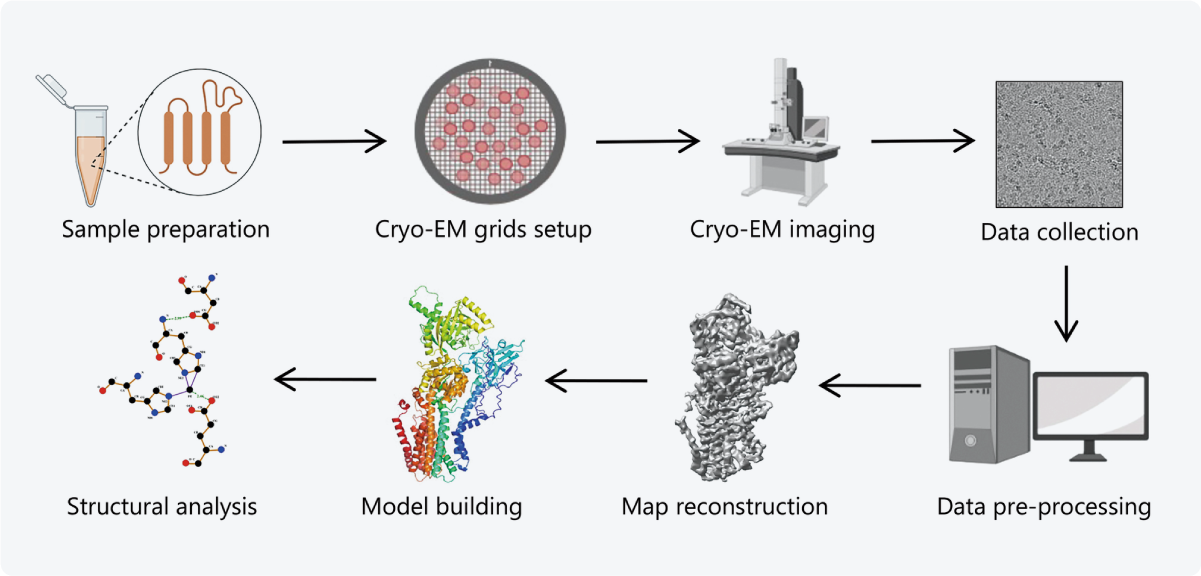Cryo-EM Single Particle Analysis Technology
Cryo-Electron Microscopy (Cryo-EM) is an ultra-low temperature frozen sample preparation and transfer technology based on electron microscopy, which can directly observe liquid, semi-liquid, and beam-sensitive samples, such as biological samples and polymer materials, etc. Since winning the Nobel Prize in Chemistry in 2017, Cryo-EM technology has become one of the most advanced and promising techniques in the field of biomedicine, especially in preclinical drug development.
Single Particle Analysis (SPA) is a series of advanced computer image processing techniques for analyzing images acquired by Transmission Electron Microscopy (TEM). These methods were developed to improve and expand the ability to obtain structural biological information from TEM images of particle samples. typically proteins or other large biomolecules, such as viruses.
In recent years, SPA has become an emerging force in the field of structural biology. As of January 27, 2021, EMDB has included a total of 13,827 3D density maps (of which 6,854 contain Protein Data Bank data), and about 80% of the 3D density maps have been analyzed by SPA technology.

Zhu, KF., et al. Military Med Res. 2023.
Figure 1. The workflow of Cryo-EM SPA
Why Choose CryoEM-Solutions
1. Native conformational elucidation
This technique enables the resolution of multiconformational 3D structures of soluble proteins, membrane proteins, and large protein complexes in a near-native state and with complete hydration.
2. No need for sample crystallization
Crystallization of the sample is not required. Samples can be prepared directly in a frozen vitreous state for immediate use.
3. Minimal sample requirements
Typically, only 100 μl of protein sample is needed, with a concentration of 2 mg/mL and a purity of > 95%.
The Applications of Cryo-EM SPA
1.Virology
2.Drug discovery
3.Pathogen research
4.Cancer treatment
5.Rare disease research
6.Complex disease research
7.Developmental and health-related research








